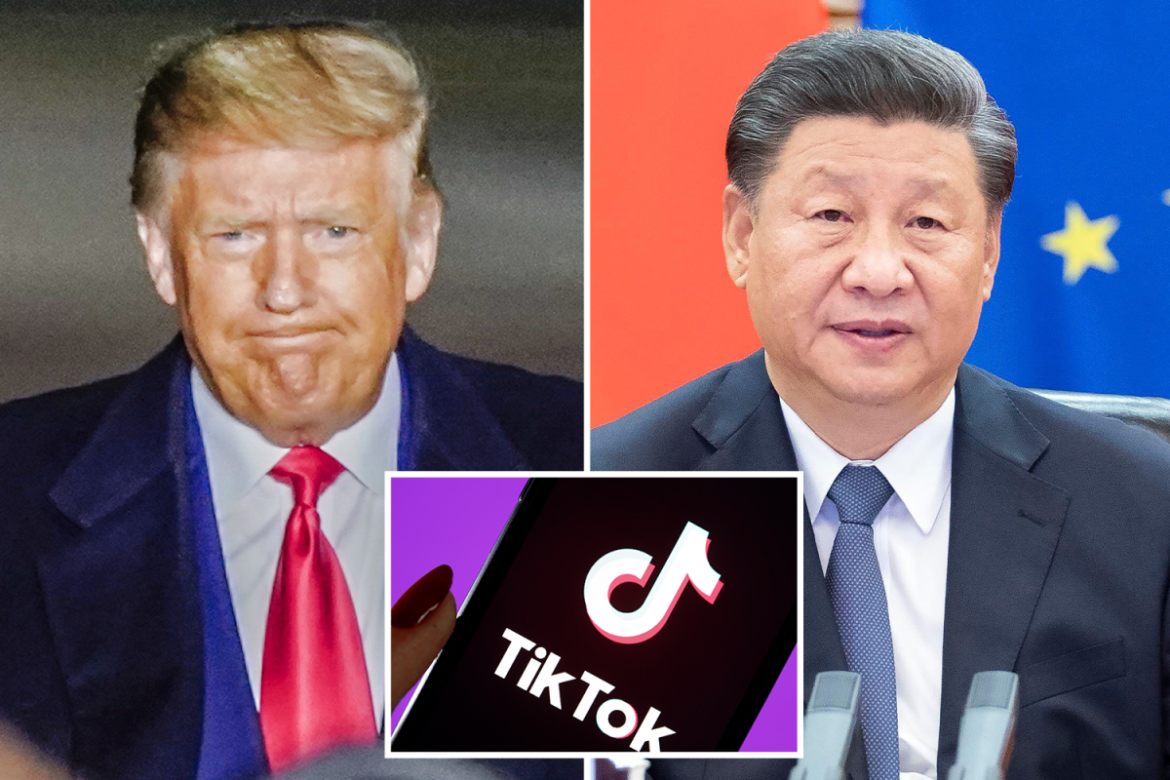Former President Donald Trump recently suggested that the U.S. could ease its tariffs on Chinese goods if a deal concerning TikTok is reached. This statement has brought new attention to the complex relationship between the United States and China, particularly around the issues of technology, trade, and national security. Trump’s comments signal a shift in how the U.S. might use economic leverage to negotiate not just trade, but also tech policy, national security concerns, and global digital platforms.
TikTok, a video-sharing app owned by Chinese company ByteDance, has been the subject of intense scrutiny in the United States for several years. U.S. lawmakers and security officials have raised concerns about TikTok’s data privacy practices, questioning whether the Chinese government could potentially use the app to collect and exploit sensitive data from American users. In response to these concerns, Trump had previously attempted to push for a ban on TikTok in the U.S., unless it was sold to an American company, highlighting the security risks perceived by his administration. This was part of his broader “America First” trade agenda, which aimed to hold China accountable for various trade practices, including intellectual property theft and unfair business practices.
Trump’s most recent statement, however, opens the door to the possibility of reducing or even eliminating some of the tariffs that were introduced during his presidency if China and the U.S. can come to an agreement regarding TikTok’s operation in the U.S. These tariffs, imposed on a wide range of Chinese goods, were central to the trade war between the U.S. and China, which began during Trump’s tenure and continued under President Joe Biden. The tariffs were meant to pressure China into addressing U.S. trade grievances, particularly regarding issues like intellectual property theft, forced technology transfers, and an imbalanced trade deficit.
The potential connection between these tariffs and TikTok illustrates the strategic role that the social media platform has come to play in the broader geopolitical struggle between the two countries. If the U.S. and China can reach an agreement about TikTok’s future in the U.S. market, it could serve as a key milestone in alleviating tensions and bringing both sides back to the negotiating table.
For China, TikTok represents more than just a social media app – it’s a significant cultural and technological force that has captured a global audience, with over a billion users worldwide. TikTok’s reach is seen as a testament to China’s growing influence in the global tech industry, challenging American tech giants like Facebook, Instagram, and YouTube. However, for the U.S., the app’s potential national security risks are seen as too significant to ignore, and the debate over how to handle TikTok has sparked discussions on data privacy, cybersecurity, and the role of foreign technology companies in Western markets.
Should a deal be reached, it could involve a forced sale of TikTok’s U.S. operations to an American company, or new regulations that ensure that American user data is kept secure and inaccessible to the Chinese government. This would be a significant concession by China, as it could mean relinquishing some control over one of its most valuable and influential tech companies. For the U.S., the resolution of the TikTok issue could serve as a model for how to manage the presence of foreign technology companies while addressing national security concerns.
Additionally, the resolution of this matter could have far-reaching effects on future U.S.-China trade negotiations. If the tariffs are reduced in exchange for an agreement on TikTok, it could signal a shift in U.S. trade strategy, potentially easing tensions and promoting a new phase in economic relations. On the other hand, if the TikTok issue remains unresolved, it could keep the trade war at a standstill, prolonging the economic and diplomatic standoff between the two nations.
Beyond TikTok, the situation could set a precedent for how other foreign tech companies are treated in the U.S. A clear framework on how to deal with apps and platforms with foreign ownership could be established, with data privacy and national security at the forefront. As digital platforms continue to shape the global economy, governments around the world are increasingly faced with the challenge of balancing economic growth with security concerns.
This issue is further complicated by the growing role of technology in global politics. Countries like China and the U.S. are not only competing for economic dominance but also for technological supremacy, which plays an integral role in national defense, innovation, and economic power. The handling of platforms like TikTok could signal broader trends in how tech policy is shaped moving forward, influencing everything from intellectual property protection to data sovereignty.
In conclusion, Trump’s remarks suggest that TikTok could play a pivotal role in the future of U.S.-China relations, not just from a tech perspective but also from a broader geopolitical and trade standpoint. The ongoing tension between the two nations will likely continue to influence global trade dynamics, with TikTok’s future in the U.S. being one of the key pieces of the puzzle. If a deal can be reached, it may open the door to a more cooperative phase in U.S.-China relations, while also setting new global standards for the intersection of tech, trade, and national security.



